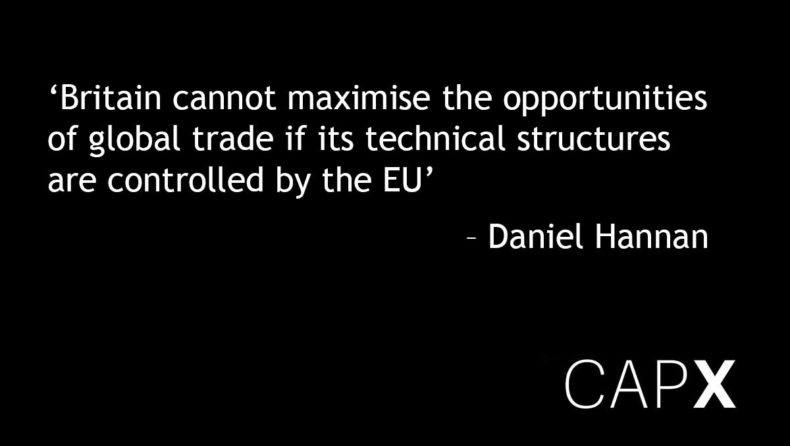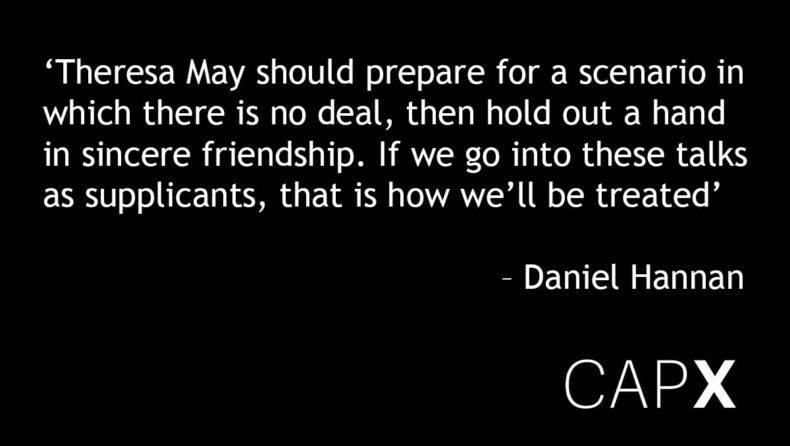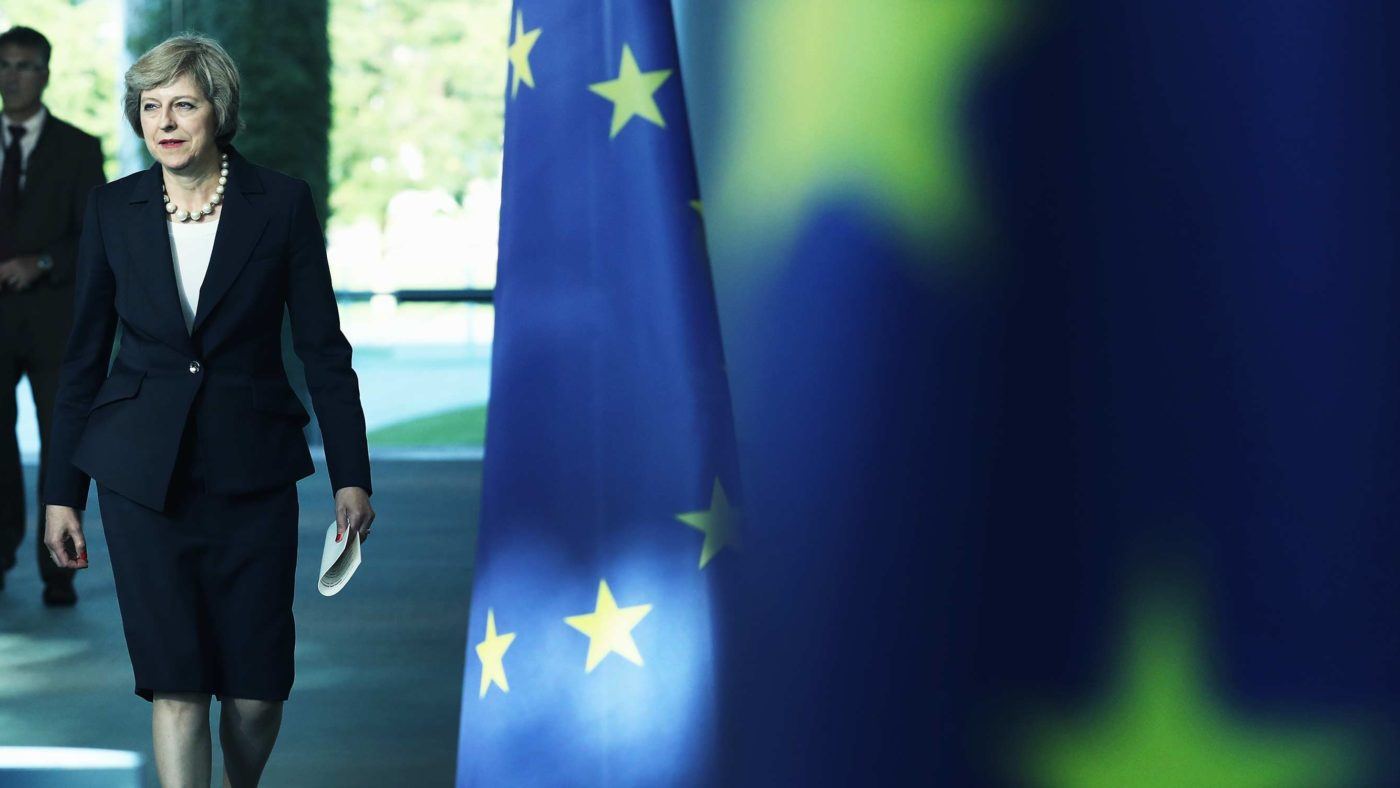Theresa May is about to make the most important speech of her premiership. In setting out her approach to Brexit, she should aim to do four things.
First, reassure the world that, outside the EU, Britain will be competitive, engaged and open for business.
Second, provide certainty to British companies and overseas investors.
Third, offer a vision that both the 52 per cent and the 48 per cent can at least live with – a vision that might not go far enough for some, and might go too far for others, but that allows most of the country to unite.
Fourth, make clear that, while we want close institutional links to the EU, no deal is preferable to a bad deal.
So far, the PM hasn’t put a foot wrong. She was a sincere Remainer, in private as well as in public. But, when the results came in, she didn’t hesitate. She grasped that a sulky, half-hearted withdrawal would be the worst of all worlds. She aims to make Brexit work for everyone – the UK, the EU 27 and, insofar as it can revitalise the stalled world trading system, the 165 non-EU countries, too.
The last point is critical. Many foreign journalists lazily describe Brexit as nativist and protectionist. I recently spent a week in Central America talking up post-EU trade opportunities, and felt like a missionary whose gospel, though joyful, was strange to his hearers’ ears.
Almost everyone started from the proposition that Britain had voted against globalisation. When I spoke about commercial opportunities – the way in which, for example, Central American sugarcane planters would find a new market once Britain no longer had to pay over the odds for European sugar beet – audiences visibly perked up.

Mrs May rightly takes every opportunity to say that she wants Britain to be “the global leader in free trade”. Wherever free trade is practised, it raises living standards, especially for the poor. In the 19th century, it made Britain the world’s greatest nation. In the 20th, it turned Hong Kong and Singapore from mosquito-infested islands into gleaming city-states. Over the past 30 years, it has been working its magic in Australia, New Zealand and Chile.
During the referendum, Treasury forecasts were based on the absurd idea that, on leaving, Britain would keep EU tariffs vis-à-vis the rest of the world. It is already clear that that won’t happen. Last week, New Zealand’s excellent new prime minister, Bill English, whom I just had the pleasure of meeting in Brussels, spoke of signing a free trade deal when Britain leaves. Donald Trump says the same.
Here are two natural trading partners, linked to us by language, kinship, business etiquette, accounting systems and the common law.
Every day, a million Britons turn up to work for American companies; and every day, a million Americans clock in to work for British firms. The reason that trade has not followed investment is that it has been controlled by Brussels.
Which brings us to the second objective. Britain cannot maximise the opportunities of global trade if its technical standards are controlled by the EU. As an independent country, we can cut tariffs and other trade barriers, as well as dismantling the more burdensome Brussels regulations. Obviously we shall have to meet EU standards when selling to the 27; but we should no longer apply those standards to the 85 per cent of our economy which depends either on domestic markets or on exports to the rest of the world.
The PM is sometimes mocked for saying that “Brexit means Brexit”, but her meaning is clear enough: EU law will no longer have primacy over British law. We might sometimes choose, as the Swiss do, to mimic EU standards for reasons of convenience; but they will no longer be forced on us.
If we’re leaving the EU’s tariff arrangements and the jurisdiction of the European Court, how can we build a compromise with the 48 per cent? Are we not embracing the hardest of Brexits?
No. Having taken back control – that is, having reasserted the supremacy of our own laws – we should seek the warmest relationship with our EU friends. Think of Canada’s alliance with the United States. Although Canada has chosen not to join the federation on its doorstep, it has the closest diplomatic, commercial and security links to that federation compatible with being an independent country.
In my new book “What Next – How to get the Best from Brexit”, I describe how we can recover our sovereignty while preserving links to our European allies.
We can, for example, remain part of the EU’s research, educational and police co-operation projects. Several non-EU states, including Norway, Israel and Canada, opt into some of these programmes, paying their share of the cost.
Although we should leave the customs union, we should keep the ban on discriminating against another member state’s products – the true basis of the single market.
We must take back control of our borders; but that doesn’t mean closing them. Most British voters want students and skilled workers from the rest of the EU to come here. They also, perfectly reasonably, want to feel that we decide who comes in and in what numbers.
Why should the rest of the EU allow us to be in a common market while opting out of other policies? After all, Angela Merkel keeps telling us that there will be “no cherry-picking”.
But that phrase assumes we are still members. It became clear during David Cameron’s renegotiation that there could be “no cherry-picking” – in other words, that we couldn’t recover powers while staying in. That is why we voted to leave. What we are after now is a mutually beneficial trade deal that works to the benefit of both sides.
This ought not to be a competitive negotiation. As the 18th-century Scottish philosopher David Hume put it, “The increase in riches and commerce in any one nation, instead of hurting, commonly promotes the riches and commerce of all its neighbours.”
But what if the EU doesn’t want an increase in its riches and commerce? What if it would rather excommunicate Britain for blaspheming against the dogma of ever-closer union?
Failure to reach a deal would not be the end of the world. According to a new study by Civitas, if we had to fall back on the rules of World Trade Organisation, UK exports to the EU 27 would be subject to tariffs of around £5.2 billion. That is around half Britain’s annual budget contributions, which Remainers – even on their own figures – keep telling us are trivial.
We’d have more than enough money to compensate any affected sectors out of our budget savings – or, indeed, from the £12.9 billion which the UK would now be collecting in tariffs on imports from the EU.

To be clear, I don’t want us to collect tariffs from our EU neighbours. I want us to have an open economy, so that the cost of living falls and productivity rises. I’m simply illustrating how pathetic it is to think that Brussels holds all the cards.
Mrs May should prepare for a scenario where there is no deal, and then hold out a hand in sincere friendship. If we go into these talks as supplicants, that is how we’ll be treated.
If, on the other hand, we remember that we are the world’s fifth economy and that, on the day we leave, we shall be the EU’s biggest market, then there is every reason to be optimistic. Neither side wants a mutually costly trade war. We’d like our EU allies to prosper, because wealthy neighbours make good customers.
If she enters the disengagement talks positively and politely, looking for the closest possible deal but prepared to walk away if the terms are wrong, Mrs May has every chance of securing a mutually advantageous outcome. Freer trade, fewer regulations, more democracy and – at last – a less fraught relationship with our neighbours. What a prize.


